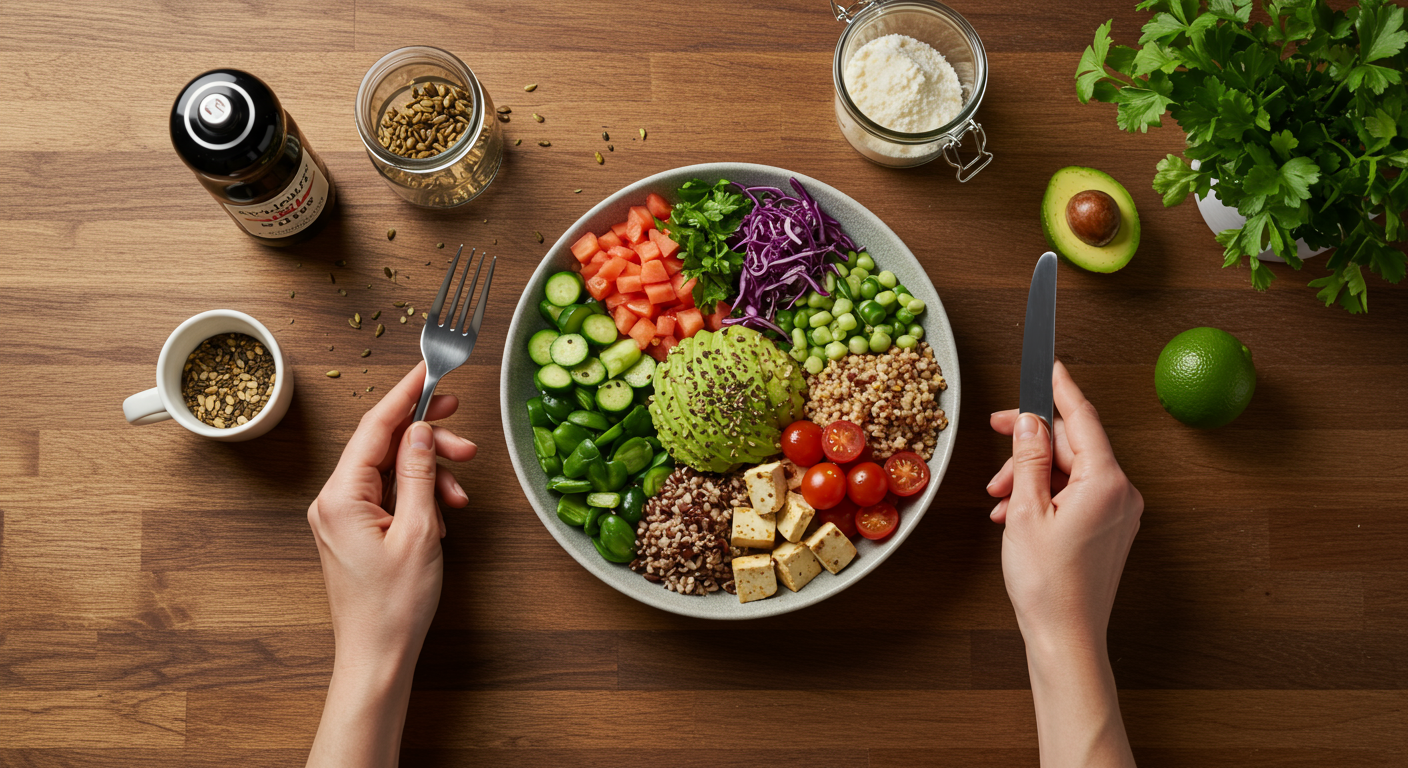Are you an athlete looking to optimize your performance while following a vegan lifestyle? You're in the right place! This guide is designed to provide you with the knowledge, recipes, and practical tips you need to thrive on a plant-based diet and achieve your fitness goals.

Deep Dive into Vegan Fitness for Experienced Athletes
As an experienced vegan athlete, you understand the importance of proper nutrition. This section delves into advanced strategies to fuel your body and maximize your results. It addresses the unique challenges and opportunities that come with a plant-based approach to fitness.
Advanced Strategies and Insights
Mastering Protein Intake
Protein is crucial for muscle repair and growth. As a vegan, you need to be strategic about your protein sources. Aim for a variety of plant-based proteins throughout the day. Here are some high-protein vegan foods to incorporate into your diet:
- Tofu and Tempeh: Excellent sources of complete protein. Use them in stir-fries, scrambles, or marinated and grilled.
- Lentils and Beans: Versatile and packed with protein and fiber. Add them to soups, stews, salads, or enjoy them as a side dish.
- Quinoa: A complete protein source that's easy to cook and can be used in salads, bowls, or as a side.
- Vegan Protein Powders: A convenient way to boost your protein intake. Look for options made from pea protein, brown rice protein, or a blend of sources.
- Nuts and Seeds: Almonds, chia seeds, hemp seeds, and pumpkin seeds provide protein and healthy fats.
Optimizing Carbohydrate Consumption
Carbohydrates are your primary energy source during workouts. Focus on complex carbohydrates for sustained energy.
- Whole Grains: Oats, brown rice, and quinoa are great choices.
- Starchy Vegetables: Sweet potatoes and potatoes can fuel your intense workouts.
- Fruits: Bananas, berries, and other fruits provide quick energy boosts.
Essential Fats
Don't neglect healthy fats, which are essential for hormone production and overall health.
- Avocados: Add them to salads or enjoy them on toast.
- Nuts and Seeds: A great source of healthy fats and protein.
- Olive Oil: Use it in cooking and for dressings.
Optimizing Your Vegan Nutrition
Meal Planning
Planning your meals is key to success. Here's a sample meal plan:
Breakfast: Vegan Protein Shake (see recipe below) and a side of oats Lunch: Tofu and Vegetable Stir-fry with Brown Rice Pre-Workout: Banana with Almond Butter Post-Workout: Vegan Protein Shake Dinner: Lentil Shepherd's Pie with a side salad
Hydration
Drink plenty of water throughout the day, especially before, during, and after your workouts.
Supplementation
Consider these supplements:
- Vitamin B12: Essential for vegans.
- Vitamin D: Often insufficient; consider a supplement.
- Omega-3: Look for algal-based supplements.
Case Study: Thriving on an Advanced Vegan Path
Athlete Name: Sarah, a marathon runner, transitioned to a vegan diet and enhanced her endurance and recovery time. She focused on proper protein intake from sources like tempeh and beans. Sarah also increased her intake of complex carbohydrates from oats and brown rice. By carefully planning her meals and supplementing with B12, she was able to improve her performance substantially. Her energy levels are consistently high, and she is now a stronger, more resilient athlete.
Navigating Complex Vegan Challenges
Iron Deficiency
Vegans need to be aware of their iron intake. Combine iron-rich foods with vitamin C to enhance absorption.
- Iron-rich foods: Spinach, lentils, and fortified cereals.
- Vitamin C sources: Citrus fruits, bell peppers.
Calcium Intake
Ensure you are getting enough calcium.
- Sources: Fortified plant milks, tofu, leafy greens.
Integrating Advanced vegan Practices
Mindfulness and Intuitive Eating
Pay attention to your body's signals and eat when you are hungry. Practice mindful eating.
Regular Bloodwork
Monitor your nutrient levels through regular blood tests to identify any deficiencies.
Scaling Your Impact: Beyond Personal Choices
Advocate for veganism
Share your success with others. Educate and inspire.
Support vegan businesses
Choose vegan-friendly brands and restaurants.
Expert-Level Vegan Living Insights
Continuous Learning
Stay updated on the latest research in vegan nutrition and fitness.
Community Engagement
Connect with other vegan athletes for support and inspiration.
Quick & Easy Vegan Swaps
- Replace chicken with tofu
- Replace whey protein with Vegan Protein Powder
- Replace dairy milk with plant-based milk (almond, soy, oat, etc.)
Next Steps in Your Vegan Lifestyle
- Plan Your Meals: Create a weekly meal plan to ensure you're meeting your nutritional needs.
- Experiment with Recipes: Try new vegan recipes to find foods you enjoy.
- Track Your Progress: Monitor your energy levels and performance to see how your body responds to a vegan diet.